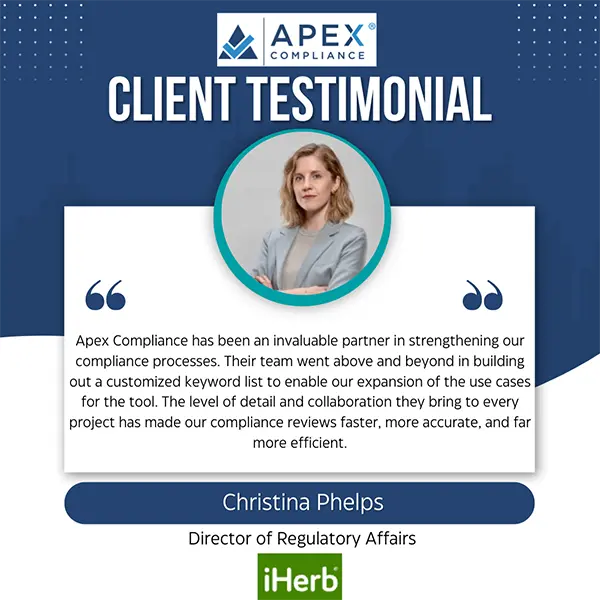
Blog Claims Result in Warning Letter
Blogs are marketing statements
This warning letter cites a kratom company for making disease claims related to opioid withdrawal, cancer, and depression in blogs.
The learning targets in this Warning Letter Wednesday are:
1) Blogs are marketing claims
2) Comparing products to drugs is high risk
3) Scan websites for high-risk statements
Blogs are marketing claims. Blogs continue to be cited in warning letters as they are “active” pieces of marketing, even if they are several years old. In this warning letter, the company talks about kava, an ingredient in its products being used for ADHD. If their products did not contain kava, this is low risk, but since this blog promotes its ingredients, this is essentially the same as putting “Our products help ADHD” right on the label.
From warning letter (blog): “Here are ten amazing kava benefits you should be aware of . . . May Alleviate ADHD Symptoms[,] kava may be beneficial to people who suffer from attention deficit hyperactivity disorder (ADHD).”
Comparing product benefits to drugs is a great way to attract FDA attention. The example below is ultra-high risk because FDA is likely concerned that if people think the product works the same as cancer drugs, the consumer may forego lifesaving treatments for the natural (unproven) options. I am a fan of natural products, but it’s important to market them in a compliant manner that does not inadvertently give people false hope about their uses.
From warning letter: “Two of Kava’s constituents …. have similar potency to the Alzheimer’s disease treatment Memantine.”
I write more about the risks of comparing products to drugs.
Most of the claims referenced in this letter have been removed, but there still are many claims on their website. I ran Apex Compliance and found dozens of very high-risk statements, especially when discussing their ingredient’s benefits. There are also statements about helping COVID symptoms on their “forgotten” blog posts. I developed Apex Compliance to help companies identify and remove marketing risks on their websites and content before publishing. Learn more and schedule a demo.
Also, DM me to schedule an Apex Compliance meeting at SupplySide West!
Read the full warning letter here.

